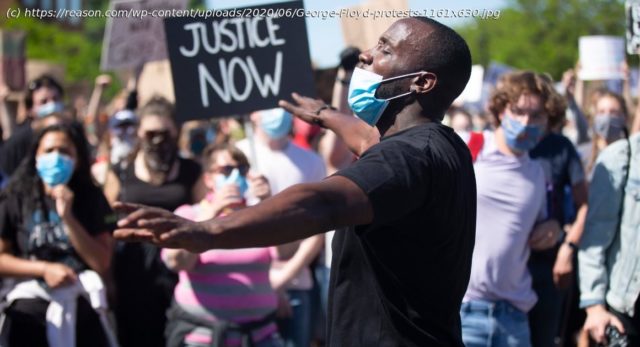And that means breaking through the « blue wall of silence. »
Derek Chauvin, the now-former Minneapolis police officer who pressed George Floyd’s head into the pavement with his knee until Floyd died, has now been charged by Minnesota prosecutors with third-degree murder and second-degree manslaughter.
The speed with which Chauvin was fired and charged is a promising sign that Minnesota officials have a real desire—whether sincere or political—to hold him accountable for Floyd’s death. After all, recent history has shown that it’s all too easy for prosecutors who want to shield police from consequences for misconduct to do so, either by outright refusing to prosecute, as the Department of Justice did in the case of Eric Garner’s killer, or by presenting a weak case to a grand jury in order to obtain a non-indictment, as happened in the killing of Michael Brown.
But given the rarity of police prosecutions (and the even greater rarity of convictions), it’s fair to wonder how much these charges really mean. Though it’s true that excessive force prosecutions are rare, comparatively speaking, they do happen often enough that we can make some educated guesses about how this one will proceed.
In a legal system where more than 95 percent of criminal cases are disposed of by negotiated guilty pleas, it might seem like there won’t actually be a trial of Derek Chauvin. But chances are, there will be. Unlike most criminal cases, a police brutality case does not rise and fall on whether the government can prove that the defendant committed a particular act. There’s really no dispute about what the officer did, or whether he was the one who did it. The question is instead whether the force was justified.
This makes taking your chances with a jury a much more appealing prospect to a police officer than it is to your average criminal defendant. Add to that the fact that jurors are generally inclined to give greater credence to police testimony than that of other witnesses, as well as the politically-charged atmosphere around issues of police violence, and a charged officer’s incentive to take a plea is greatly reduced.
The facts of George Floyd’s death and the offenses that Chauvin has been charged with give the ex-cop a number of possible defenses to present at his trial.
Unlike in a case where a police officer shoots someone with a gun, the facts at hand will allow Chauvin to argue that he had no reason to think that he was putting Floyd’s life in danger. The choice of charges reflect an awareness of this fact by the prosecutors—neither third-degree murder nor second-degree manslaughter require proof that the defendant consciously intended to cause death (a necessary element of Minnesota first- and second-degree murder, as well as first-degree manslaughter). Third-degree murder requires that the defendant have acted with « a depraved mind without regard for human life, » whereas second-degree manslaughter applies to acts with « culpable negligence whereby the person creates an unreasonable risk, and consciously takes chances of causing death or great bodily harm to another.






